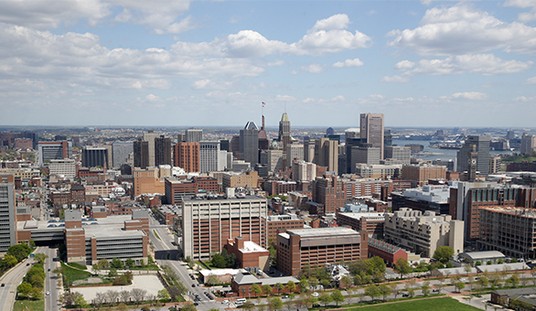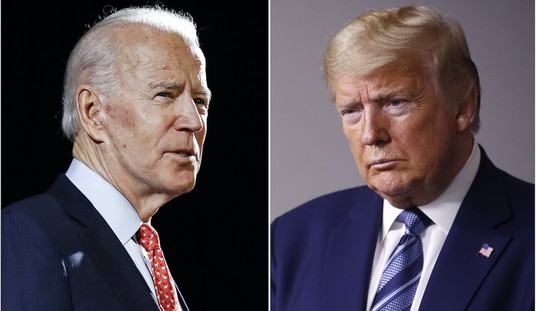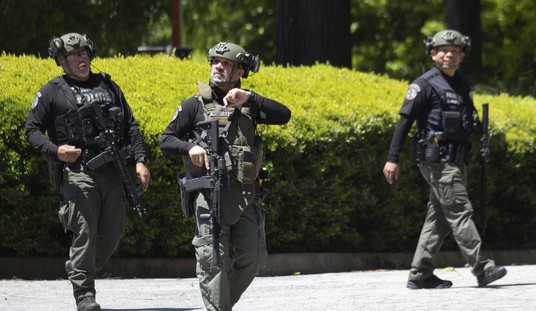Last week, in Pueblo Colorado, someone went onto the property of the Friendly Harbor Community Center and dumped paint on a statue of the Reverend Doctor Martin Luther King Jr. and Emmett Till. There were also racist bits of graffiti in support of the KKK painted on the sidewalk in the immediate area. Fortunately, neither statue was torn down or suffered significant physical damage as we’ve seen in so many other recent incidents. Also, members of the community joined together the next day to assist in removing the graffiti and restoring the monument to its previous condition.
None of that alters the fact that the vandalism took place. But one response from local officials does highlight the differences we see in how various attacks and acts of unrest and destruction are handled in these very uncertain times. Officials immediately announced that an investigation was underway and the incident was being looked at as a possible hate crime. (CBS Denver)
A hate crime investigation is underway in Colorado after someone vandalized a statue of Martin Luther King, Jr. and Emmett Till. It stands outside the Friendly Harbor Community Center on North Grand Avenue in Pueblo.
“KKK” was also painted on the sidewalk and pillars on the building’s exterior sometime Wednesday night or Thursday morning.
The director of the center said police were out canvassing the neighborhood Thursday night.
The statue and the land it sits upon are public property. As such, whoever committed this attack needs to be identified and brought to justice. While that’s going on, however, we should take the opportunity to yet again pause and consider precisely what does or doesn’t qualify as a “hate crime” in America these days.
Regular readers are likely already aware of my less than glowing assessment of the entire idea of hate crimes. All acts of vandalism are already illegal and treated as property crimes. Putting additional resources into the investigation and giving the perpetrators harsher sentences based on what they were thinking at the time makes these thought crimes, which really shouldn’t be anywhere in our legal codes if we supposedly value equal justice under the law for all.
But for better or worse, the courts have largely gone along with this worrisome trend so we’re left dealing with hate crimes when they crop up, as was clearly the case in Pueblo last week. With all of this as a prelude, let’s consider some other recent “property crimes” that bear certain similarities to this one.
What of the case where a statue of Christopher Columbus was torn down in Baltimore last month?. (There were several of these, actually.) What were the people committing this act of destruction of public property thinking at the time? Did they simply not care for the depiction of the explorer or the materials used in its creation? Perhaps there were some crazed Columbus fans there who thought the nose was too large. No. Obviously they hated what Columbus symbolized as a “colonialist” and the impact his discoveries had on Indigenous Peoples. (Never mind the fact that Columbus never set foot on North American soil, which is an argument we can save for another day.)
How about the statue of George Washington that was destroyed by rioters in Portland? Was the angry mob simply upset that the statue was blocking their view of the park? Were they huge fans of apple trees? Again, no. They were clearly demonstrating their hatred of what Washington represents and the fact that he was a slave owner in a time when that was unfortunately not only legal in our country but ended up being baked into the constitution. He wasn’t just a slave owner, either. He was a White slave owner.
Were there not thought crimes taking place in those instances as well? It’s bad enough to that we have to go along with these ideas of thought crimes being prosecutable in the first place, but if we must have them, shouldn’t they be applied consistently? Apparently not. While slavery is evil and it remains a dark chapter in our history, it was a part of the world those people grew up in. And even though they’ve been dead for centuries, you’re still allowed to hate them without penalty. The same goes for the leaders of the confederacy.
But if hate is the factor driving you to commit any sort of property crime, you’ve done the same thing as the people who desecrate monuments to protected classes. Do I expect this to change? Not in the least. But we’ve navigated a course over the history of our country where we’ve migrated from one form of inequality to another, even if you find the modern version more palatable. Just something to mull over this evening.








Join the conversation as a VIP Member